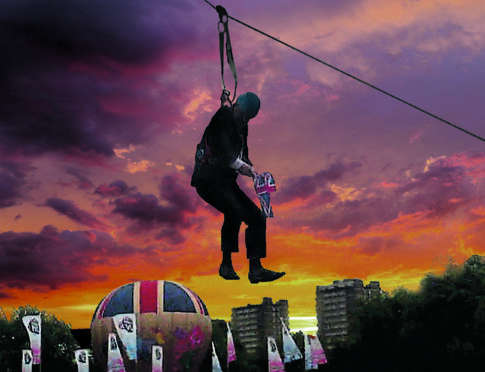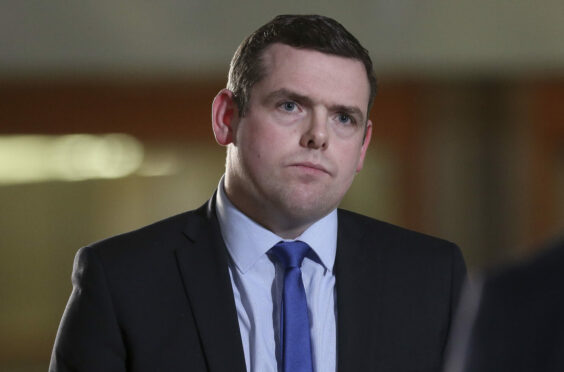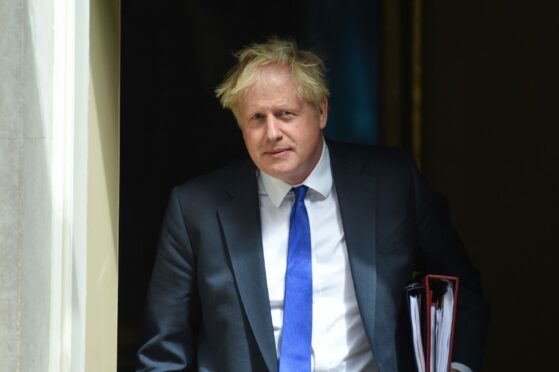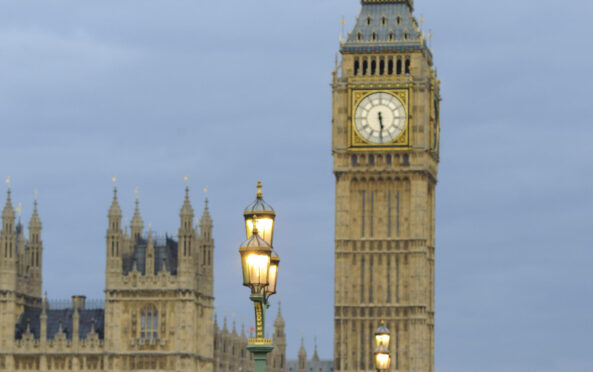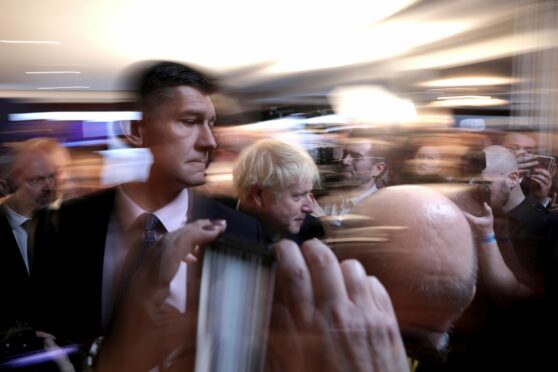
Boris Johnson is easily the worst prime minister in British political history, according to Scotland’s foremost historian.
Sir Tom Devine said prime ministers such as Neville Chamberlain, who was widely criticised for trying to appease Adolf Hitler in the run up to the Second World War, and Lord North, who gained lasting infamy for leading Britain into catastrophic defeat in the American War of Independence in the 18th Century, were better men and politicians than Johnson.
Devine, professor emeritus of Scottish history at the University of Edinburgh, said other prime ministers such as David Cameron and Tony Blair made grave, unnecessary policy errors but none matched “serial liar and rascal” Johnson in their “laxity of moral values”.
Devine said: “He is certainly the most scandal-ridden prime minister ever. I can’t recall someone who has been accused of this whole series of personal weaknesses including the first ever PM to actually break the law.
“The breaking of the law was the tip of the iceberg. Thirty years ago, a man with that kind of story and private life would never have been elected PM.
“There has been a new acceptance of laxity in moral values especially in the sexual area and that’s allowed people like Johnson to rise to the top. He is typical of the new breed of politicians in what you might call a secular society. He is the worst prime minister by far.
“Other individuals did their duty by God and King or Queen. They tried their best. None of them were ever accused of these personal character flaws and the systematic lying.”
Former Labour leader Blair, prime minister from 1997 to 2007, was widely criticised after leading Britain into the invasion of Iraq while Conservative PM Cameron’s unforced decision to call a referendum on the EU in an attempt to placate the right in his party was denounced as one of the most gratuitous, complacent and calamitous political decisions ever.
Sir Anthony Eden’s tenure was also condemned in the light of his handling of the Suez crisis in 1956. After seizure of the Suez canal by the Egyptian nationalist Colonel Abdul Nasser, Eden feared that a new Arab alliance would cut off oil supplies to Europe.
He then conspired with France and Israel to retake the canal but the invasion sparked widespread international condemnation from the United Nations, the Soviet Union and the Commonwealth, and was met with the threat of sanctions from the United States. Eden was forced into a humiliating retreat. The episode was seen by historians as evidence of Britain’s declining global importance.
But Devine said none of these leaders and their mistakes compared to the abysmal record and moral failings of Johnson, who announced on Thursday that he would remain as prime minister but step down once a new Conservative leader was elected.
Devine said: “The thing about being prime minister or occupying any high office is that you get some things right and some things wrong. Every single prime minister has made mistakes either great or small. If you take Tony Blair, he has been accused of making a terrible error by taking part in the invasion of Iraq.
“If you go back to Sir Anthony Eden in the early 1950s, he was responsible for taking British forces with France into the occupation of Egypt over the Suez canal crisis.
“That had a very harmful effect on Britain’s international prestige. They were forced to leave the canal area because of American pressure.
“It was a symbol of Britain’s declining status and power in the world after World War Two. Neville Chamberlain, the prime minster before Churchill, has been accused of appeasement towards Hitler.
“Some of these views are true, some are simplified but none of them approach the level of the problems associated with Boris Johnson.
“Lord North is infamous for being the British PM who lost the American colonies leading to the independence of the USA in 1783.”
History has not been kind to Lord North. He has been long regarded as a failure as the prime minister who lost America. The UK Government website states that North was a “potentially great premier brought low, like so many others, by ‘events’”.
Devine said: “North was undoubtedly wrong to try and solve the American colonial problem by legal means and military force.
“If he had been more conciliatory there might still be a union between America and the UK. There is now a more generous appraisal of Chamberlain, not as an appeaser but as a man who had lived through the horror of the First World War determined to try every means to try to avoid such a horrible conflict again.
“Most of the generation in the 1930s remembered the war. Anthony Eden, meanwhile, showed great competence as a foreign secretary and served in a number of governments.
“But he committed one cardinal error but it was an error of policy, it wasn’t an error of morality. Similarly with Tony Blair, if you think he made a wrong call then that’s OK.
“Again he was not prone to the kind of scandals that have long afflicted Johnson. The difference between them all is that their flaws or errors were all errors of policy. Johnson’s government and his career personally is strewn with scandalous incidents. He is a serial liar, his private and public lives have been scarred by letting people down who trusted him.
“He has also not been successful in the policy area by producing a very hard Brexit. There were other opportunities to maintain a connection with the European market.
“Then at the same time he has been publicly accused of breaking international law over the Northern Ireland Protocol. But there has never been a PM in British history who has combined major policy errors – including failure to negotiate with the Scottish Government over the so-called demand for a Scottish independence referendum – with such moral flaws.
“This has transformed the relationship between London and Edinburgh. It is no longer a relationship of consent but rather of coercion and therefore distinctively anti-democratic.
“In addition to policy mistakes which every PM makes, there have been these other errors – flaws of personality, morality and breaking the rules.”
Devine’s views on Johnson were echoed by Pat Thane, professor of contemporary British history at King’s College London. She said: “It is impossible to think of a comparable situation.
“I can’t think of a time when so many ministers lined up to tell the prime minister to go.
“It’s very hard to think of anyone who compares in terms of personality. His achievements have not exactly been great. Getting us out of Brexit has had a mixed outcome to say the least. We have these amazing levels of poverty which he has done nothing about.
“I can’t think of anyone else who has achieved so little. I think he must be a candidate for the worst prime minister. Chamberlain didn’t handle the war well but much earlier when he was minister of health in the 1920s, he really was quite successful.
“He improved old-age pensions, reformed the Poor Law and did other things. I live in London and, as a mayor as well, I can’t think of anything good that Boris Johnson did.
“He made it easier for multi-millionaires from abroad to buy expensive flats and leave them empty while people were going homeless. As a prime minister, he was an international laughing stock.”
Devine said Johnson’s three-year reign had thrown up a plethora of questions to be asked by a generation of future historians. He said: “One of the main questions is how did it come about that a stable political democracy like Britain elected such a rascal?”

Enjoy the convenience of having The Sunday Post delivered as a digital ePaper straight to your smartphone, tablet or computer.
Subscribe for only £5.49 a month and enjoy all the benefits of the printed paper as a digital replica.
Subscribe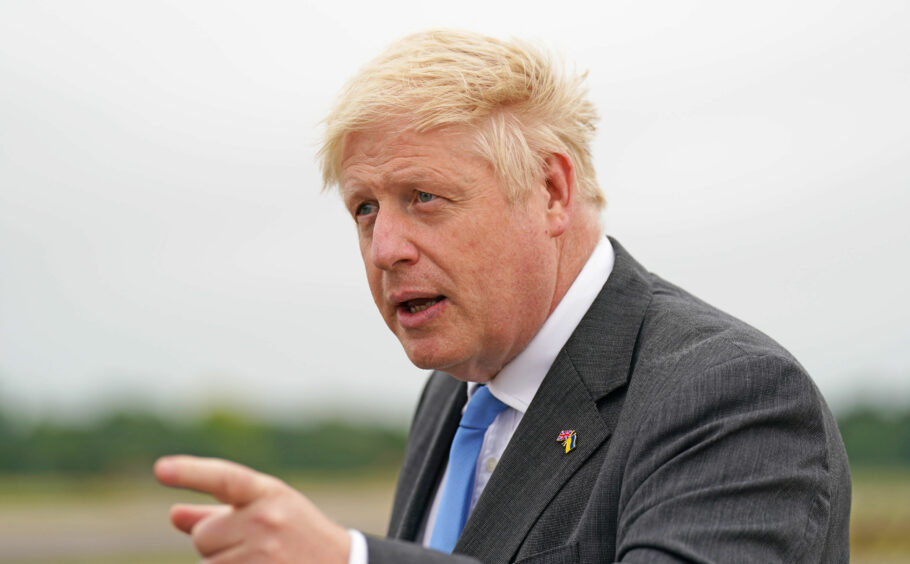 © Joe Giddens/PA Wire
© Joe Giddens/PA Wire